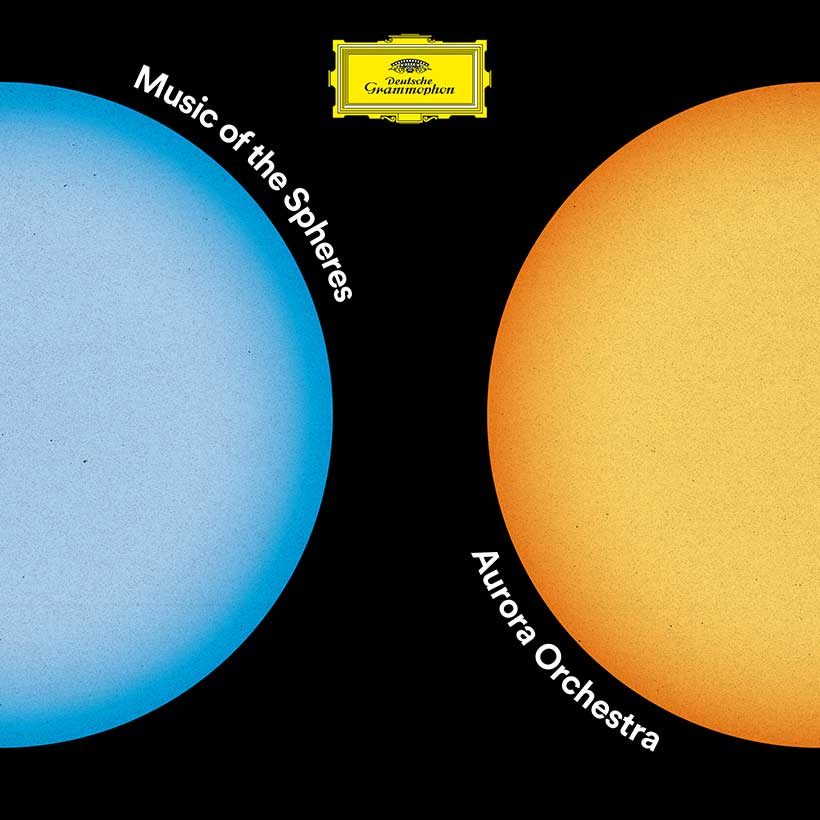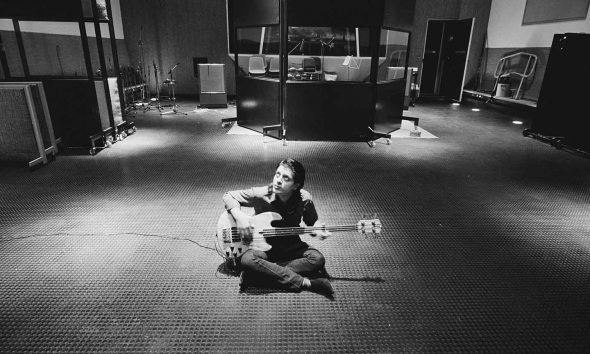Aurora Orchestra Announce ‘Music Of The Spheres’
Aurora Orchestra’s debut album for Deutsche Grammophon, ‘Music Of The Spheres’, featuring memorised performances, will be released in June.

Deutsche Grammophon has announced the Aurora Orchestra’s debut album for the label, Music Of The Spheres, will be digitally released on 12 June 2020. Music Of The Spheres is based on the ancient Greek concept that the movement of the planets produces a celestial harmony of profound beauty and significance. This poetic idea of music in the cosmos inaudible to the human ear became an enduring concept for thinkers and scientists in understanding the universe for over two thousand years, from Antiquity to the Renaissance. Pythagoras noted, “There is geometry in the humming of the strings. There is music in the spacing of the spheres.”
Features memorised performances
Music Of The Spheres marks the first time the Aurora Orchestra has applied its trailblazing memorised-performance approach to a studio recording. The album features memorised performances of Mozart’s 41st and final symphony, the ‘Jupiter’, and the world premiere recording of Max Richter’s ‘Journey (CP1919)’ which was commissioned especially for this project and is inspired by the discovery of the first pulsar star, CP1919. Richter’s ‘Journey’, uses rhythms governed by the same ratios used by ancient astronomers to describe the orbits of the planets and – inspired by Aurora’s “by heart” projects – Richter created it to be performed by players from memory. ‘Journey (CP1919)’ has been digitally released today, 29 May, before the full album is digitally released on 12 June.
Aurora Orchestra’s Music Of The Spheres also features Thomas Adès’s ‘Concentric Paths’ Violin Concerto, with soloist Pekka Kuusisto, the first studio recording of Nico Muhly’s arrangement of John Dowland‘s song ‘Time Stands Still’, featuring Iestyn Davies as soloist, and David Bowie’s ‘Life On Mars’, arranged by John Barber.
“I have never experienced recording sessions of such intensity and such joy”
Nicholas Collon, Aurora’s Principal Conductor, said, “In 2014, Aurora embarked on a new journey, playing for the first time a complete symphony wholly from memory; the experience for me and the players was unforgettable, enabling us to digest the music and structure to an even deeper extent, and to find new levels of communication with each other and our audiences. Well over a hundred ‘memorised’ performances later, we are thrilled to have made our first such studio recording, this time of Mozart’s final symphony, the ‘Jupiter’ – to my knowledge the first recording in which an orchestra plays from memory. I have never experienced recording sessions of such intensity and such joy, pushing ourselves to dig ever deeper into an understanding of the notes Mozart wrote on the page, yet freed from the printed music.”
Aurora Orchestra
Aurora Orchestra is a virtuosic chamber orchestra, built of extraordinary musicians, giving electrifying performances at the very highest international standard. Richard Morrison at The Times noted, “Aurora is the most bracing breath of fresh air to invigorate the British classical music scene in the past ten years.” Aurora Orchestra combines world-class performance with adventurous programming and presentation. Founded in 2005 under Principal Conductor Nicholas Collon, Aurora has quickly established a reputation as one of Europe’s leading chamber orchestras.
Aurora Orchestra recently launched Aurora Play, a new digital series featuring highlights from Aurora’s performance archive alongside newly-created interactive content broadcast on YouTube each Sunday at 4pm. The orchestra’s performance of Mozart’s ‘Jupiter’ Symphony from the 2016 BBC Proms will be broadcast on Sunday 14 June, following the release of Music Of The Spheres.
Aurora Orchestra’s new album Music Of The Spheres will be digitally released on 12 June 2020.
The world premiere recording of Max Richter’s ‘Journey (CP1919)’ has been digitally released.
Do you want to be the first to hear the latest news from the classical world? Follow uDiscover Classical on Facebook and Twitter.












